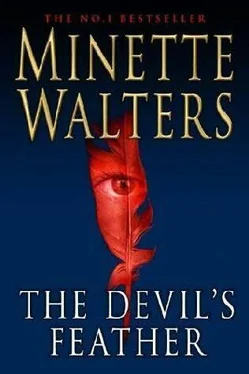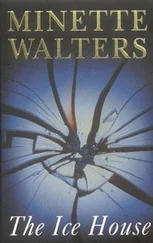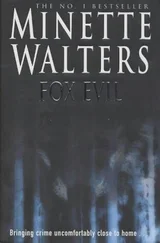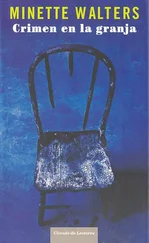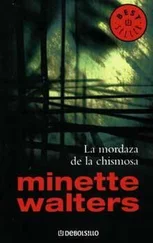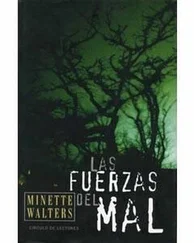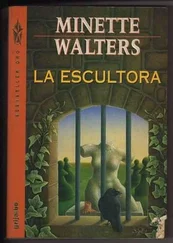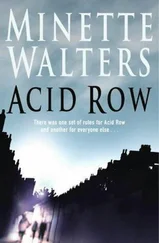“No,” I said cautiously. “It’s non-fiction…a book on psychology…not very exciting, I’m afraid.”
“Oh, I’m sure it is. My mother would have been so interested. She loved reading.”
I opened my mouth to dampen her enthusiasm but she was already talking about something else. I don’t remember what it was now, a reference to Daphne du Maurier, I expect-“an old friend of Mummy’s”-whom she trotted out to new acquaintances as a close family connection. This seemed a little unlikely to me, as there was a considerable age difference between the novelist and Lily, and du Maurier had been dead for fifteen years, but Madeleine brushed such details aside. In the world she inhabited, meeting a person fleetingly at a party amounted to friendship.
She dropped names for effect in the same way that her mother was said to have done. I began to understand this when I commented on the paintings at Barton House and learnt that Nathaniel Harrison was her husband. It made sense of Jess’s remark that Madeleine had acquired the collection by sleeping with the man who owned them-even if “married to the artist” would have been more illuminating-but it led to a definite withdrawal on Madeleine’s part.
She spoke of Nathaniel as if he were up with greats, and to cement the impression she quoted David Hockney, suggesting he was a close acquaintance and a great admirer of her husband’s work. To listen to her, Hockney was a regular visitor to Nathaniel’s studio and always singing his praises to critics and dealers. I was genuinely interested, not just in how they knew Hockney, but in why he would champion an artist whose style and approach to painting were so different from his own.
“I didn’t realize he spent so much time in England,” I said. “I thought he was permanently based in America now.”
Madeleine smiled. “He comes when he can.”
“So how did you meet him?”
“The painting world’s a small one,” she said rather coolly, looking for someone else to speak to. “Nathaniel’s invited to all the openings.”
I should have left it there. Instead I asked her which other contemporary artists she and her husband knew. Lucian Freud? Damien Hirst? Tracey Emin? And where did her husband fit into the Brit art scene? Had Saatchi bought any of his work? She continued to smile but it fell far short of her eyes, and I knew I’d overstepped some invisible line in etiquette. I was supposed to revere the absent Nathaniel, not demonstrate knowledge of other artists or question Nathaniel’s close friendship with them.
It was all very childish, and I was amused at how she avoided me until Peter brought us together again. “Did Marianne tell you Jess Derbyshire’s been helping her settle in?” he asked, steering her towards me with a hand in the small of her back. “Jess has built a hoist so that Marianne can access the Internet via her mobile.”
I watched Madeleine’s expression close at the mention of Jess. “It’s fairly ramshackle,” I said. “We’ve discovered a signal near the ceiling in the back bedroom that allows me to operate my laptop underneath it. But it’s not ideal, and I wondered if you’d have any objections to my installing broadband. It’s available through the Barton Regis exchange and it would make life a lot easier. I’ve asked the agent and he says he can’t see a problem as long as I pay for it. I’ll happily leave the ADSL modem behind when I go.”
Peter placed a teasing hand on my shoulder. “It’s no good talking gobbledy-gook to Madeleine. She still uses a quill and parchment. It’s a little box,” he explained to her, “that separates voices from online connection…means you can use the phone at the same time as the computer. If Marianne’s prepared to pay for it then my advice is to give her the go-ahead immediately.” He laughed. “It’ll make that old ruin of yours more attractive to the next tenant, and it won’t cost you a thing.”
Madeleine’s smile would have frozen the balls off a brass monkey, but it wasn’t directed at Peter. It was directed at me. I had a strong sense that it was his hand on my shoulder that offended her, and not what he said.
I WAS SURPRISED, therefore, when she came to Barton House, full of smiles, the next morning. “I realized last night that I never gave you an answer to the broadband question,” she said gaily, as I opened the front door. “Goodness! Is the key working properly now? Mummy only ever used the bolts because the lock was so stiff.” She walked past me into the hall. “I paid a man to grease it but he didn’t think it would last.”
I shut the door behind her. “Jess lent me some WD-40. I give it a spray every day which seems to be doing the trick.” I gestured towards the sitting-room. “Would you like to go in here? Perhaps you’d rather be in the kitchen?”
“I don’t mind,” she said, looking around to see if I’d made any changes. I saw her eyes flicker towards the piece of wallpaper that had peeled away from its Blu-Tack and was now, courtesy of Jess, firmly reattached with paste. “Mummy was always very pukka about entertaining guests in the drawing-room. She thought it was non-U to expect her friends to put up with dirty crockery and vegetable peelings. Did you manage to light the Aga all right?”
“Jess did.”
Madeleine’s mouth thinned immediately. “I expect she made a song and dance of it.”
“No.” I opened the door to the sitting-room. “Shall we go in here?”
Despite its size and sunny aspect, the room was too dreary to qualify as a drawing-room, and I hadn’t been into it since my first day. Jess had told me it used to be full of antiques until Madeleine replaced them with junk from a second-hand furniture shop.
The carpet, a threadbare plush pile in muted pink, showed multiple evidence of dog accidents from when Lily had mastiffs of her own. According to Jess, she’d never exercised them enough, and had covered the marks with Persian rugs. Now packed away in storage, they were probably going mouldy, if the musty smell of damp in the room was any indication of their state when they were removed. The walls were worse. They hadn’t been decorated in years and the plaster was flaking above the skirting boards and beneath the coving round the ceiling. Irregular patches showed where Lily’s paintings had been.
In an effort to distract the eye, Madeleine had hung two of her husband’s originals and three Jack Vettriano prints on the inside walls- The Singing Butler, Billy Boys and Dance Me to the End of Love-but all you could see of the prints was the sunlight reflecting on their glass. I couldn’t understand why she’d put them there as Vettriano’s film-noir style sat very uncomfortably with Nathaniel’s fantasy pictures of rooted and foliage-laden buildings, and I assumed she’d bought them cheap as a job lot. It wasn’t a subject I had any intention of discussing with her, however, as our tastes were clearly different.
“What do you think of Vettriano’s work?” she asked, lowering herself to the vinyl sofa and spreading her skirt. “He’s very popular. Jack Nicholson owns three of his originals.”
“I prefer Hockney and Freud.”
“Oh, well, of course. Doesn’t everyone?”
I produced my friendliest smile. “Can I make you a coffee?”
“I couldn’t. I’ve just had one with Peter. He has an espresso machine. Have you tried it yet?”
I shook my head as I took the chair beside her. “Yesterday’s the first time I’ve been to his house. He wanted to introduce me to some of the neighbours.”
She leaned forward. “What did you think of them?”
“Very nice,” I answered. It happened to be a true reflection of my views but Madeleine wasn’t to know that. In the circumstances, I could hardly say anything else without appearing rude.
Читать дальше
